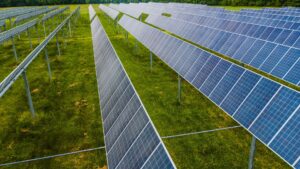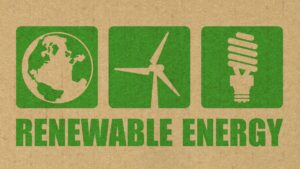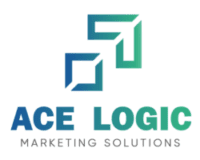The renewable energy sector is booming worldwide, and India is no exception. With government incentives and climate awareness rising, industries like solar power, wind farms, biofuels and electric vehicles (EVs) are capturing imaginations and investments. Yet even as awareness grows, many potential customers still have questions about technology, costs, and benefits. In this article, we’ll explore the typical market challenges and how the right marketing strategies can help power up your growth.
Leading Renewable Energy Industries
- Solar Energy: Solar panels on rooftops and large solar farms are rapidly expanding. Solar energy is now one of the fastest-growing electricity sources, especially for homes and businesses. It lets customers reduce bills and carbon footprints using sunlight.
- Wind Energy: Wind turbines both onshore and offshore generate clean electricity with minimal pollution. Wind farms provide renewable power at scale and complement solar by often generating more at night or in winter.
- Bioenergy: This includes biofuels, biogas, and biomass. Bioenergy turns organic waste (crop residues, wood, or even algae) into fuel or electricity. It’s crucial for decarbonizing industries like transportation, heating, and agriculture that can’t use solar/wind directly.
- Electric Vehicles (EVs): EVs are transforming transportation. Every EV uses electricity, which ideally comes from renewables like solar and wind. Together, EV adoption and green energy are synergistic: clean power charging clean cars.
Each of these sectors plays a vital role in the renewable mission. Solar and wind tackle power generation; bioenergy addresses fuel and industrial uses; and EVs revolutionize transport. A digital marketing strategy must appreciate these roles and tailor messages accordingly.
Common Marketing Challenges in Renewables
Despite the clear benefits of renewables, marketing them isn’t straightforward. Renewable energy products often involve new technologies that customers find complex. Many people still wonder who to trust, which solution fits them, and whether it’s worth the investment. This leads to low awareness and uncertainty. Renewable brands often face crowded markets and have to differentiate their offerings from competitors.
Another challenge is the long sales cycle. Projects like solar installations or EV fleet deployments involve technical specs, multiple stakeholders and big budgets. They require time and education. In fact, renewable projects typically have very long sales cycles that demand continuous communication and nurturing. In large deals, you may need buy-in from CFOs, sustainability officers or engineers – each with different concerns.
Common challenges include:
- Technical Complexity: Products need explanation. A homeowner may not know how a solar inverter works, or a farmer may be curious about the science behind biofuels.
- Fragmented Audiences: From tech-savvy early adopters to mainstream buyers, and from urban EV drivers to rural farmers, the audience segments vary widely.
- Budget and Trust: Renewable solutions often involve big upfront costs. Customers want strong proof-of-concept and credibility before buying.
- Regulatory Factors: Policies and incentives change, so marketing must clarify tax credits or rebates and navigate regional regulations.
Ideal Customers and Clients
Each renewable sector has its own target profile:
- Solar Customers: Homeowners with suitable rooftops or yards; commercial property owners; municipal bodies for solar farms; rural communities off-grid. Decision-makers include homeowners, facility managers, or government planners.
- Wind Energy Clients: Utilities and energy companies building wind farms; industrial customers needing large power supplies; government energy departments. Projects are often national or state-level.
- Bioenergy Clients: Agribusinesses or farmers with organic waste; industries with high heat/fuel needs (like paper mills, breweries); municipal wastewater treatment plants. These clients look for waste-to-energy solutions or renewable fuel options.
- EV Customers: Individual car owners, urban commuters, and families switching to electric cars; businesses that run delivery fleets or employee shuttles; government agencies promoting public EV adoption. For B2B business outreach, fleet managers and corporate sustainability officers are key contacts.
Understanding the ideal client means speaking their language. That’s why detailed customer profiles (often developed by agencies like Ace Logic Solutions) are critical. For example, an EV buyer might worry about charging infrastructure, while a factory manager cares more about energy savings. A good marketing partner helps shape messaging and content for each group.
How a Digital Marketing Partner Helps
A dedicated digital marketing agency brings specialized skills to tackle these challenges. Below, we look at key service lines and how they solve renewable marketing problems:
Brand Communication
Building a trustworthy brand is essential. A marketing partner helps craft a clear identity and story that resonates with eco-conscious values. For instance, Ace Logic Solutions might highlight a solar company’s sustainability mission or a wind company’s community impact. Strong branding differentiates you from competitors. Agencies also manage public relations and media outreach (press releases, events, and webinars) to build credibility. Consistent messaging across ads, websites, and presentations ensures that every touchpoint reinforces what makes your company unique. Well-crafted brand communication addresses customer doubts and builds trust through testimonials, certifications, and case studies.
Content Marketing
With technical products, educating your audience is crucial. Content marketing – like blog posts, guides, and videos – answers common questions and clarifies complex topics. For example, a blog post can explain “5 Benefits of Home Solar vs. Grid Power,” while a whitepaper dives deep into “EV Battery Life and Charging Infrastructure.” Good content establishes you as an authority, improves SEO rankings, and gently nurtures leads. In fact, content marketing generates about three times as many leads as outbound methods and costs significantly less.
By publishing helpful articles and resources (like infographics or explainer videos), you make the technical aspects more accessible. A table of common content types and their scenarios is shown below:
| Content Type | Best Use Case / Scenario |
| Blog Posts | Answer FAQs and basic queries (e.g., how solar works) and improve search rankings. |
| Whitepapers/E-books | Deep-dive guides on technology (e.g., renewable policy, project ROI) to capture leads and educate stakeholders. |
| Infographics/Charts | Visually simplify complex processes or data (e.g., solar savings, wind map) to share on social channels. |
| Case Studies | Showcase real projects and ROI (e.g., cost savings from a bioenergy installation) to build credibility. |
| Videos/Webinars | Demonstrate products on-site (e.g., solar installation time-lapse) or host live Q&A to engage and educate audiences. |
| Guest Posts/Podcasts | Publish in industry magazines or podcasts to reach new audiences and build partnerships. |
Effective content is also strategically promoted via email campaigns and social media (see below). Ace Logic Solutions can develop an editorial calendar and produce these assets, ensuring that every piece of content aligns with your brand and targets the right audience.
Social Media Communication
Social media platforms (LinkedIn, Twitter, Facebook, Instagram, even YouTube) are powerful for storytelling and engagement. A digital marketing partner will manage social channels to amplify your message. For instance, LinkedIn is great for B2B outreach (wind energy developers, corporate EV fleets), while Instagram or Facebook can inspire homeowners (beautiful solar roof installations, EV lifestyle shots).
Renewable brands can share project highlights, educational infographics, customer testimonials, and behind-the-scenes videos. Agencies help by creating a content plan and even scheduling posts. They also monitor industry conversations online and participate in relevant discussions. This shows that your brand is active and responsive. Engaging posts can go viral in niche communities, boosting awareness. Paid social ads (e.g., LinkedIn sponsored content targeting facility managers) also fall under social communication, and a partner can manage these campaigns effectively.
Search Engine Optimization (SEO)
Renewable companies often need to capture high-intent search traffic. People searching for “best solar panels in Mumbai” or “wind turbine cost” should find you first. SEO experts on the agency team will research relevant keywords and optimize your website and content to rank well on Google. They’ll ensure technical SEO (site speed, mobile-friendliness) and perform regular site audits.
For example, Ace Logic Solutions would target keywords like “renewable energy solutions India” or “EV charging station installers.” By integrating these into blog articles and landing pages, your site attracts qualified leads searching for solutions. SEO is a long-term game but it builds trust: top search results are often perceived as more credible. Combining SEO with local strategies (Google My Business for local installers, local-language content in India) further ensures your company appears when regional buyers look for clean energy partners.
Performance Marketing
Performance marketing means measurable campaigns like pay-per-click (PPC) ads, display ads, and retargeting. A digital agency can run Google Ads, LinkedIn Ads, and even Facebook/Instagram ads tailored to renewables. For example, a paid LinkedIn campaign might target “Energy Managers” and “CFOs” at large companies when showcasing a wind farm case study. Or Google Search Ads could capture “install solar panel” searches.
These campaigns have two major benefits: they generate immediate leads and provide analytics. An agency will track which ads lead to inquiries or downloads and then optimize spend for best ROI. Paid channels can also be geo-targeted (e.g., focusing on Maharashtra or Karnataka for EV charging stations). Using retargeting, the agency can serve ads to people who visited your site but didn’t convert, keeping your brand top of mind. Overall, combining SEO (organic) and performance (paid) channels ensures both short-term and long-term lead flow.
Why Ace Logic Solutions is the Ideal Partner
Renewable energy companies benefit most from a full-service partner who understands both technology and marketing. Ace Logic Solutions is a Mumbai-based digital marketing agency that specializes in integrated services. They bring together brand strategists, content creators, SEO experts and performance marketers under one roof. This means your solar/wind/bio/EV company doesn’t have to coordinate multiple vendors — Ace Logic handles it all cohesively.
Conclusion
Companies in the Renewable energy sector need more than great technology — they need a great story, clear education, and a strong presence where customers are looking. Digital marketing is the engine that drives awareness, builds trust, and ultimately generates leads and sales. By partnering with an agency like Ace Logic Solutions in Mumbai, renewable companies ensure they have the right support to navigate the market. From brand building to SEO to lead nurturing, a comprehensive digital strategy will help your brand stand out and grow.
With the right digital marketing partner at your side, you can focus on innovating in clean energy while your agency powers up your outreach and impact.
FAQs
- Q: Why is digital marketing important for renewable energy brands?
A: Digital marketing helps explain complex products simply, reach specific audiences, and measure results. It builds credibility (through content and social proof) and generates targeted leads, which is crucial in the technically detailed renewable sector. - Q: Who are the ideal customers in renewable energy?
A: It depends on your niche. Homeowners and businesses for solar; utilities and governments for wind; industries with waste for bioenergy; consumers and fleet operators for EVs. A digital marketing agency will create buyer personas to target communications effectively. - Q: What type of content works best?
A: Educational and trust-building content tends to work well. For example, blog posts and infographics answer FAQs, whitepapers explain detailed benefits, and case studies show real savings or success stories. Using a mix keeps prospects engaged at different stages of the buying process. - Q: How can Ace Logic Solutions help my renewable energy brand?
A: Ace Logic Solutions offers end-to-end digital services. They can refine your branding, craft targeted content, manage social media outreach, implement SEO strategies, and run performance marketing campaigns — all in one place. Their experience in the Indian market also helps localize your strategy for maximum impact.

Ace Logic Solutions is a business success partner specializing in integrated strategies across multiple sectors. We provide insights-driven solutions through our unique PLAY approach, helping businesses navigate challenges, optimize performance, and unlock new growth opportunities. Our articles offer actionable insights on brand strategy, digital marketing, and business consulting to drive lasting success.




